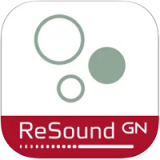Tinnitus apps usually use sound therapy or cognitive behavioral therapy (CBT) to alter your perception of or reaction to tinnitus.
Sound therapy apps
Sound therapy uses external sound to alter how you perceive or react to your tinnitus. Research suggests sound therapy can effectively suppress tinnitus in some people. Sound therapy can work by masking the sound or distracting attention away from it, or by encouraging you to get used to the sound and not focus on it so much (habituation).
Sound therapy apps that use masking
Sound therapy apps that use masking exposes a person to background sounds, like white noise, nature sounds, or ambient sounds, to mask tinnitus or distract attention away from it.
- Listening to sound machines or music through headphones or other devices can offer temporary breaks from the perception of tinnitus.
- Household items like electric fans, radios, and TVs also can help.
- Many people with tinnitus also have some degree of hearing loss. Hearing aids are the gold standard for helping with tinnitus as they can compensate for the hearing loss and they also have a masking effect as external sounds are brought to the foreground, often pushing tinnitus to the background. Hearing aids can also help with neural reorganisation (helps your brain to change and adapt to stimuli) which can help many people with tinnitus in the long term.
Sound therapy apps that use habituation
Sounds therapy apps that use habituation work by training your brain to become more accustomed to tinnitus, and can reduce your brain's processing of the tinnitus signal. Here, you listen to sounds, initially for longer periods of time, and over time your brain recalibrates its processing of tinnitus and learns to ignore it.
It can be thought of in a similar way to how you eventually don’t think about the feeling of glasses on your nose. The therapy is done with guidance from a specialist and the time frame varies per person, usually anywhere from 12 to 24 months.
Cognitive behavioural therapy (CBT) apps
Cognitive behavioural therapy (CBT) is a tinnitus treatment that addresses the affected individual's reaction to tinnitus. It doesn't aim to eliminate auditory perception as sound, but aims to reduce or correct your negative response to tinnitus.
- CBT aims to change negative thoughts or perceptions to more positive and realistic thoughts.
- In this way, people with tinnitus can function well despite having it.
- CBT can also help to reduce emotion and attention to tinnitus which is key to habituation.
- People with tinnitus can develop an anxiety loop, where anxiety can be caused by the tinnitus, which in turn can make the tinnitus worse. CBT can help to manage the anxiety and break the anxiety loop.
- Read more about CBT apps.







